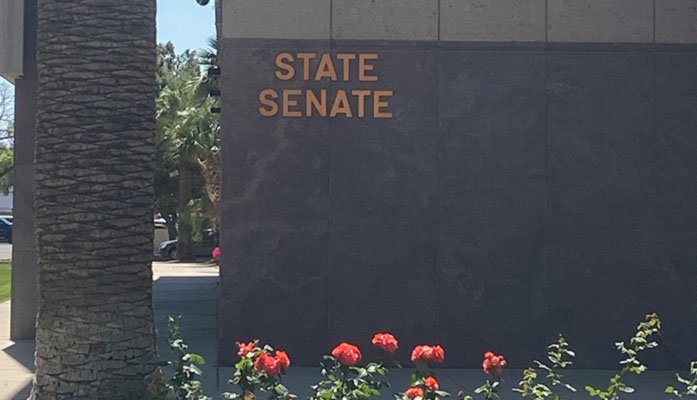Commissioner of the State Land Department
Arizona Senate Panel Advances Approval of New Land Commissioner

By Jonathan Eberle |
In a notable development amid growing tensions between Arizona’s executive and legislative branches, the Senate Committee on Director Nominations has advanced Robyn Sahid’s confirmation as Commissioner of the State Land Department. This occurred during a recent hearing despite Republican critiques aimed at Democratic Governor Katie Hobbs over her controversial remarks last week.
Republican committee members expressed their discontent with Hobbs’ comments, labeling them an “explosive temper tantrum” and alleging a threat to circumvent the Senate’s confirmation authority, which they deemed unlawful. “Senate Republicans will remain the adults in the room, serving as the necessary check and balance on the executive,” asserted Committee Chair Sen. Jake Hoffman. He insisted that Hobbs’ statements carried no legal weight and would not disrupt the committee’s efforts.
Senator John Kavanagh added to the sentiment, describing the governor’s remarks as a “meltdown.” He praised the committee’s decision to confirm Sahid, stating, “We confirmed a competent, non-partisan, qualified individual to serve as commissioner for the State Land Department.”
Sahid, who boasts a diverse background in public service, garnered bipartisan support for her experience and professionalism. President Pro Tempore T.J. Shope highlighted the committee’s openness to nominees who exemplify these qualities. “Robyn Sahid fits the bill and should serve as a model for the type of individuals we want to advance,” he noted.
This incident underscores an ongoing power struggle between Governor Hobbs and the Republican-controlled Senate concerning executive appointments. Since her inauguration in 2023, Hobbs has had contentious encounters with lawmakers, even withdrawing various nominees in response to what she called a partisan obstruction of the confirmation process.
According to Arizona law, many agency heads appointed by the governor are subject to Senate confirmation. The Republican majority has leveraged this requirement to impose a more extensive vetting process, escalating tensions in the state government.


















